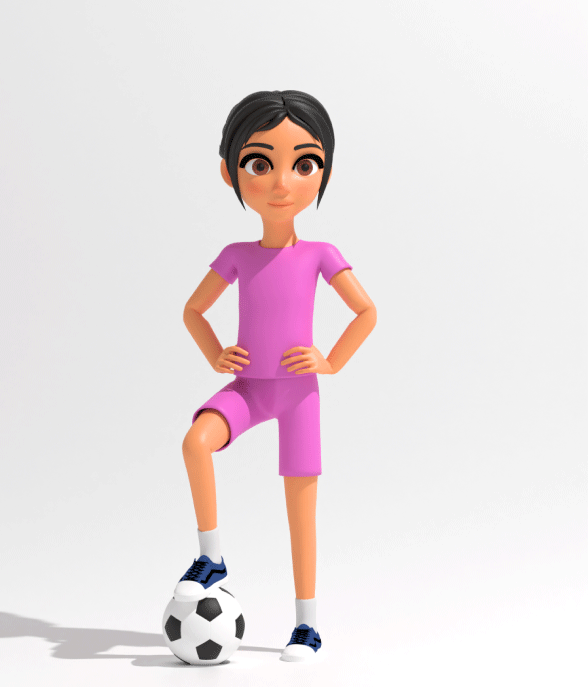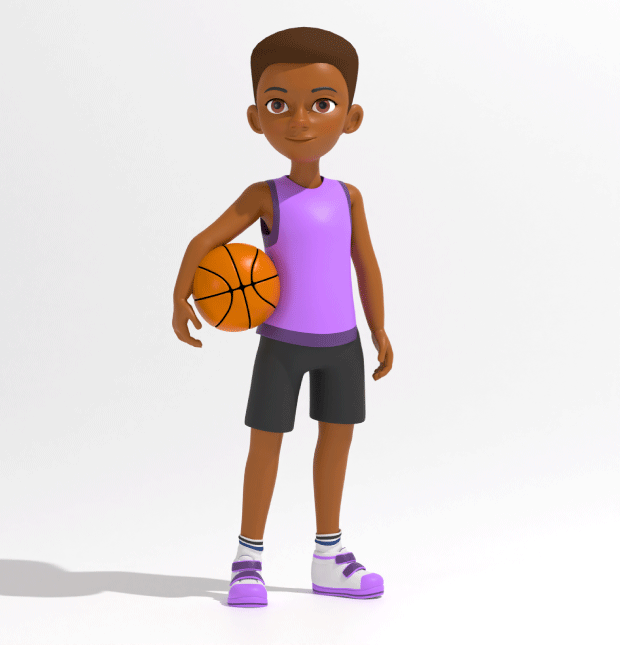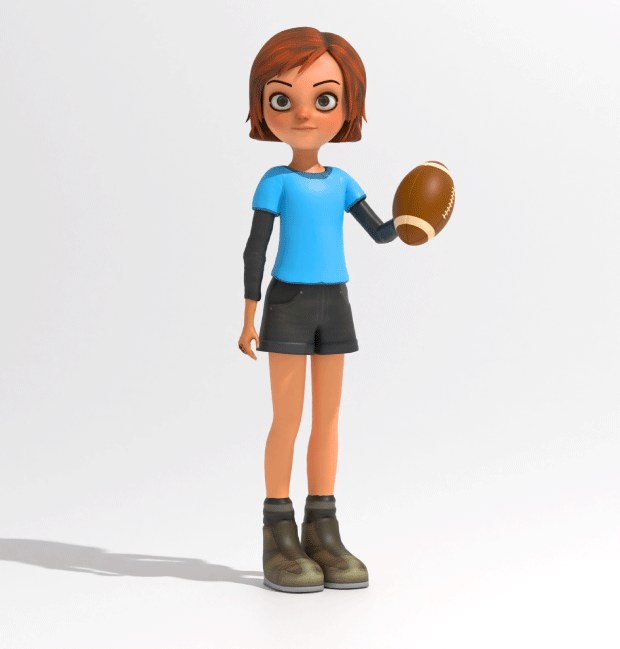
Hi, we call ourselves the P.E. Gang. Our P.E. teacher, Mr. Fitter, teaches us all different ways to show good character and stay active. We also learn why it’s so important to stay physically fit. We are always looking for new kids to join our gang. In our P.E. Gang, everybody gets to play and we don’t care who wins or loses as long as we are having fun.
Like kids everywhere, the P.E. Gang sometimes struggle with eating healthy, getting enough exercise, watching too much TV, eating too many sweets, or gaining a little too much weight. Below are some links to help you and your family stay active and understand the importance of staying healthy.
Kids are less active today than ever before. Being overweight and out-of-shape puts kids at an increased risk for health problems, including diabetes and heart disease. When children incorporate exercise into their daily routines at a young age, these healthy habits are more likely to stay as children grow into adulthood. Exercise will also help your child feel better physically and mentally — it helps to clear the mind and work off angry feelings.
Young children should get at least 60 minutes of exercise daily — even if this time needs to be spread out throughout the day. Physical activity at school is not enough for children, so try to lead active lifestyles at home. If your child doesn’t like exercising or sports, find other enjoyable or rewarding ways for your child to be active. You can even use exercise as a reward rather than junk food. Instead of candy for a reward, take your child on an excursion or active adventure — like hiking, kayaking, or playing a game outside.
There are so many fun things to do that are not very active, and sometimes it’s hard or impossible to exercise outside. Try limiting screen time to 2 hours or less per day for your child. This includes limiting time on the computer, watching TV, playing on tablets, playing on phones, etc. Try incorporating fitness videos into your media use, especially if it’s difficult to exercise outside. Exercise with your child — you will bond and also be healthy together. Be a role model. Find an activity that you like to do and do it!
No matter how hectic life gets, try to set aside time for your child to play. Exercise builds strong hearts, lungs, bones, and muscles. Being active helps kids work off angry feelings. Children develop balance and coordination through active play. Run, jump, and play with your kids. It’s fun, you’ll bond, and it’s good for you too! Here are some tips for you and your family to stay active!
Try these easy ideas for active family fun, outdoors and indoors:
Let your children know how important exercise is by being as active as you can. When children see their parents walking, running, bicycling, or playing sports, they will be more likely to do it themselves. Exercise often and show a positive attitude towards staying active. Set exercise goals for your family. When you reach your goals, celebrate by having a family fun day!
The American Academy of Pediatrics recommends less than 2 hours a day for children ages 2 and up. Encourage activities that get children up and moving! Look for media, games, and apps that encourage children to move their bodies and be active. With your child, keep track of time spent in front of a screen as well as time spent doing physical activity.


Like kids everywhere, the P.E. Gang sometimes struggle with eating healthy, getting enough exercise, watching too much TV, eating too many sweets, or gaining a little too much weight. Below are some links to help you and your family stay active and understand the importance of staying healthy.
Cooking and eating at home as a family is important because this is how children will learn about and try healthy foods. Foods from restaurants can have unhealthy condiments or ingredients, and portion sizes can be quite large. If your child helps you cook at home, those meals become a source of pride and confidence for children, and those meals can be shared with others. Plus, it’s fun for children to eat creations that they helped make!
It’s important for children and adults to eat a healthy breakfast because breakfast helps the body to wake up. It also helps the mind to wake up, and therefore the brain can learn and function better. Eating a healthy breakfast will also result in making better food choices for lunch or in the afternoon.
If you are concerned about your child’s weight, make sure to take an informed, positive, and sustainable approach. Children are different and experience growth in different ways. Your child’s doctor can look at your child’s growth charts and weight to determine if you should do something to improve weight patterns. Work with your child to find healthy foods together and explore delicious and fun ways to eat healthy. If you feel your child needs more exercise, find physical activities that your child enjoys and make exercising fun.
